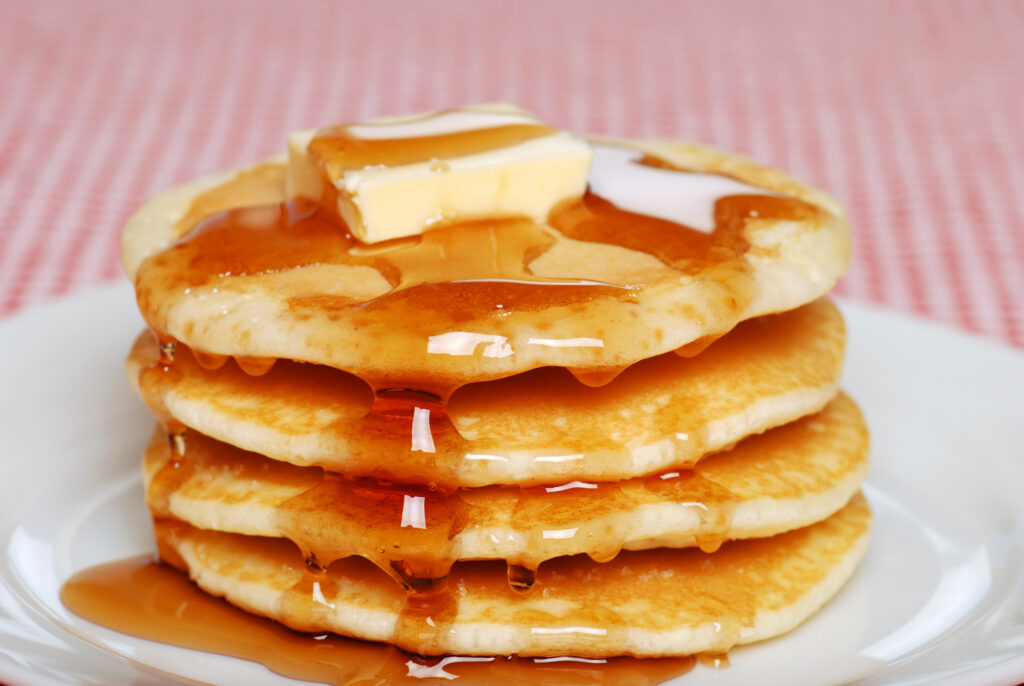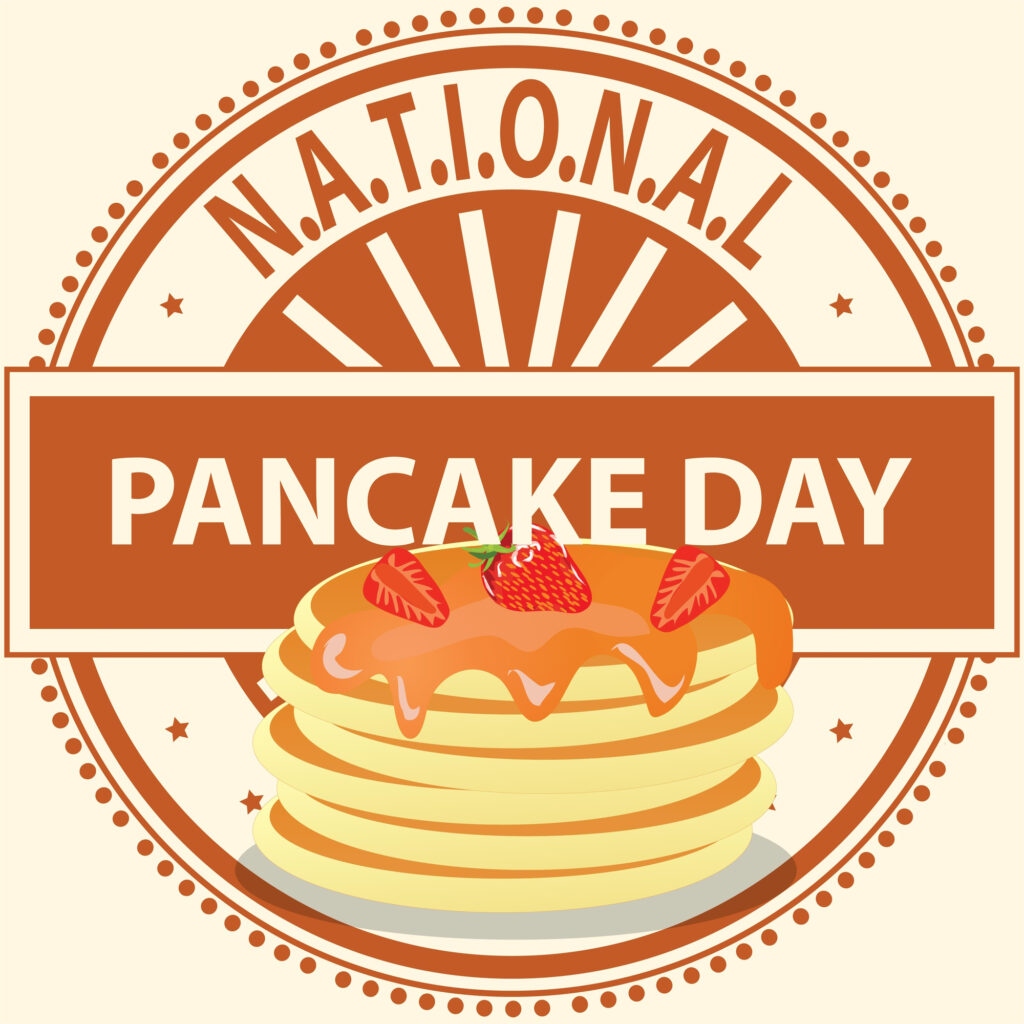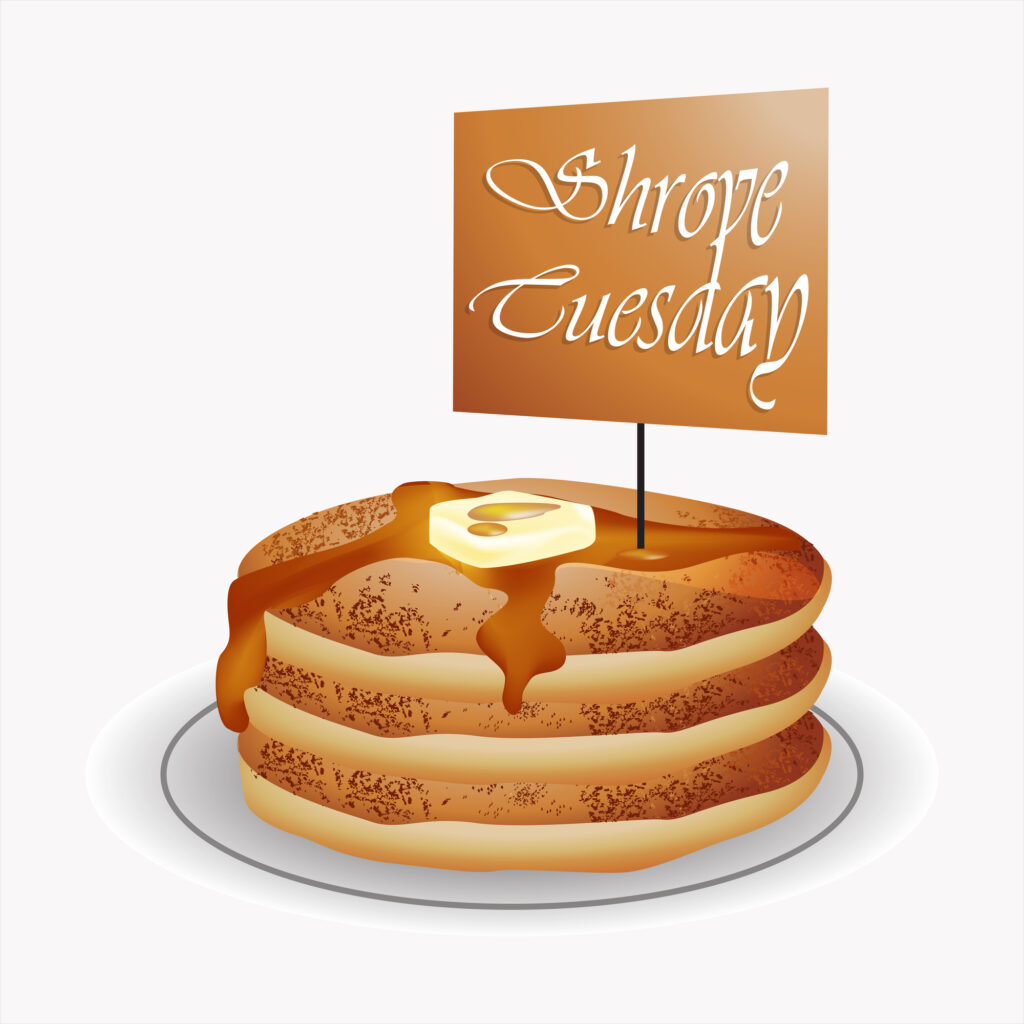Politics and pancakes are running mates. The only one who has more names than politicians are pancakes.
Think Johnnycakes, Flapjacks, and Slapjacks. Feast on hotcakes, silver dollars, and griddlecakes. There are allies like French crepes, Israeli latkes, Australian pikelets and rivals like Russian blini and Iranian khagineh.
Pancakes and politics are mixed in the batter.
Consider popular Pancakes and Politics events held throughout the U.S. How about National Pancake Day or free pancake breakfasts sponsored by candidates running for election? Then there’s Shrove Tuesday . . .
The Oxford Dictionary describes a pancake as “a thin, flat cake of batter, usually fried and turned in a pan.” There are so many versions it’s impossible to identify the original. Ingredients, like policies, can change at a moment’s notice.
Most food historians believe the first pancakes were called alita dulcia (“another sweet” in Latin). That takes them back two thousand years to first century Rome. Others argue that pancakes were in the poetry of ancient Greeks, Cratinus and Magnes. Moderates say that people ate pancakes thirty thousand years ago in the Stone Age.
Which version has your vote?
Basically, pancakes are a humble fare. The batter is made from a starch (flour) usually mixed with eggs, milk, butter, even beer. It can be leavened or unleavened. Some eat it sweet, others savory. They’re good for breakfast, lunch, or dinner.
That leaves a lot of room for debate. Choose from nine thousand pancake recipe books on Amazon, powdered mixes, pre-packaged batter, frozen, and toaster pancakes. You can get pancake pans, electric pancake griddles, and the big guy – a fully automated high-capacity machine that spits out fifty pancakes every 3 to 5 minutes . . . setting you back four thousand dollars.
That’s a lot of pancakes.
According to Taylor Aucoin in History Today, in the Middle Ages European Christians gave up meat and dairy for Lent – a season of forty days of prayer, repentance, and fasting before Easter. It “gradually developed [into] a festival of joy and raucous play, known by various food-related names like Carnivale and Mardi Gras (Fat Tuesday).” Shrove Tuesday (Pancake Day) was the last day to indulge in dairy like eggs, fat, sugar, and milk mixed into pancakes.
Eventually Shrove Tuesday went woke, becoming a holiday for the people. Aucoin described it as a “social contract maintained into the early modern period, with the humble pancake emerging as its ultimate symbol . . . emblematic of the greater liberty to which [apprentices] felt entitled.”




